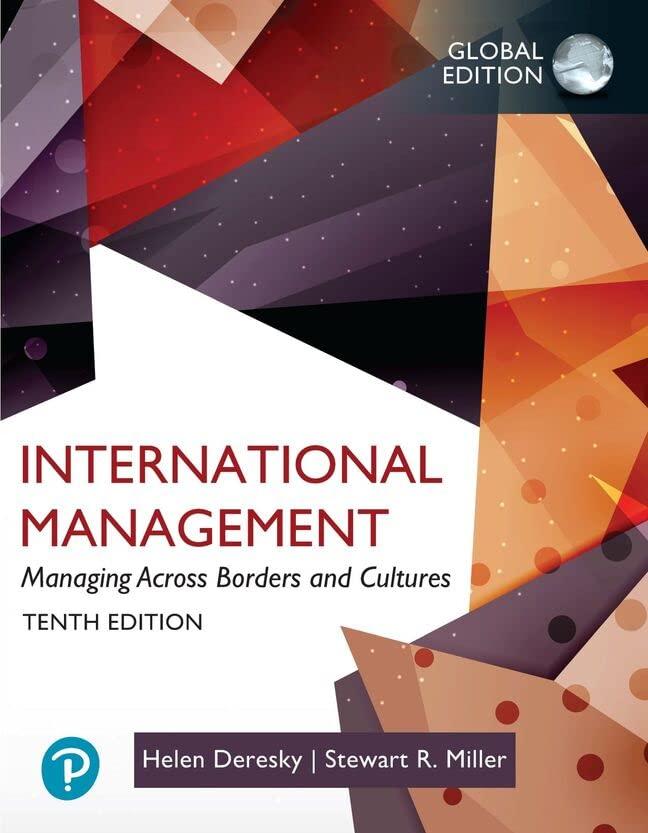In 2019, the Indonesian government threatened to pull out of the Paris Climate Agreement and thereby bring
Question:
In 2019, the Indonesian government threatened to pull out of the Paris Climate Agreement and thereby bring a World Trade Organization challenge in their ongoing tariff trade spat with the European Union over palm oil. The move came at an uncomfortable time for both administrations since they were in the midst of negotiating the European Union–Indonesia Free Trade agreement.
Palm oil is the main raw material used in the production of biofuels and Indonesia is the world’s top palm oil producing country. The EU biodiesel market will be worth an estimated $70.7 billion a year by 2026, with imports from Indonesia worth about $386 million in 2019 rising to $1.7 billion by 2022. While Europe is hungry for biofuel—more than half the palm oil imported to Europe ends up in the fuel tanks of cars and trucks—policymakers are unhappy about subsidies enjoyed by Indonesian palm oil producers. The concern is that government contributions might encourage producers to convert more and more forests into agricultural land for palm oil, and therefore increase the amount of harmful carbon dioxide released into the atmosphere.
Following an anti-subsidy investigation in December 2018, the European Union imposed duties of 8 percent to 18 percent on biodiesel from Indonesia the following year and declared that palm oil would be phased out as a transport fuel between 2023 and 2030. Jakarta immediately retaliated by vowing to introduce counter tariffs of 20–25 percent on EU dairy products.
This would be a substantial rise from the then 5 percent levies for most dairy products from the European Union and the United States. The Indonesian government also insisted that it was complying with all sustainability norms and had imposed a moratorium on new palm oil plantations.
Analyst Jarryd de Haan at the Australia-based institute Future Directions International said that any escalation of the dispute would hurt Indonesia more than its EU trading partners. Nearly 10 percent of Indonesia’s output is exported to European countries versus 1 percent of goods going in the other direction. In 2019, the European Union exported 164,000 tons of dairy products to Indonesia with a valuation of $300 million, accounting for 40 percent of Indonesian imports. An evolving taste for Western-style diets among the growing base of health conscious, middle class consumers was shown to be driving demand for milk products in Indonesia. Indonesia, however, is not out of options to trade successfully elsewhere as it is one of the major export destinations of dairy products from Australia, following close behind China, Japan, and South Korea.
When it comes to palm oil, Indonesia is looking at boosting exports to countries such as China and Russia (which have a more lenient stance on palm oil) coupled with increasing domestic consumption. In July 2021, Jakarta lowered tariffs on exported crude palm oil and associated products to encourage trade. The move was hailed by the Oil Palm Plantation Fund Management Agency as key to increasing competitiveness in the international market. China, which is already an importer of Indonesian palm oil, has increased its orders and removed its tariffs on the commodity.
Question
1-1. What options do Indonesian palm oil producers and policy makers have to guard against being caught in a tariff trade war?
1-2. Analyze the tariff trade war between the European Union and Indonesia.
1-3. How can Indonesia balance its obligations under the Paris Climate Agreement with its reliance on palm oil to help its exports?
Step by Step Answer:

International Management Managing Across Borders And Cultures
ISBN: 9781292430362
10th Global Edition
Authors: Helen Deresky





